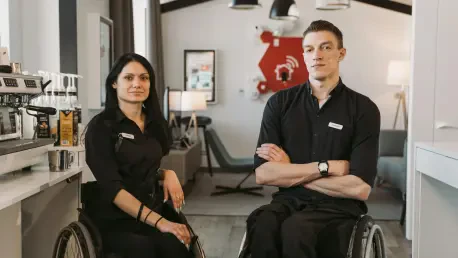Are disabilities only those we can see? This question challenges long-held assumptions and shines a light on the unseen. Astonishingly, 80% of disabilities are hidden, leaving many to navigate a world often unaware of their unique needs. This invisible reality prompts an urgent call for greater inclusivity, especially in spaces as globally frequented as hotels.
The Imperative of Accessibility in Global Hospitality
Globally, one in seven individuals live with a disability, emphasizing the urgent need for inclusivity across all facets of life. The hospitality industry, being a cornerstone of global travel and tourism, finds itself at a crucial vantage point to set standards for accessibility. Trends reveal a growing shift toward inclusivity as a core value, driven by both corporate responsibility and societal demand. Dubai epitomizes this movement with its ambitious goal of becoming a certified autism-friendly destination, pointing toward a future where inclusivity is not just a consideration but a guarantee.
Pioneering Change: Hilton’s Hidden Disabilities Sunflower Program
In a groundbreaking initiative, Hilton has adopted the Hidden Disabilities Sunflower program in its UAE locations, marking a significant step in the region’s hospitality landscape. Those with non-apparent disabilities, like anxiety or chronic pain, can wear a Sunflower lanyard, signaling their need for understanding and patience discreetly. Hilton’s widespread implementation across its UAE hotels builds on the company’s broader commitment to accessibility, complementing similar initiatives in Europe, the U.K., and the U.S. By leading in this effort, Hilton reinforces its global mission to create welcoming environments for all its guests.
Insights from Hilton and Voices of Impact
Hilton’s commitment to this initiative has drawn widespread attention. A Hilton executive emphasized the program’s importance, stating, “Inclusivity is not just about physical accommodation but equally about our guests’ emotional and cognitive comfort.” This perspective is echoed by a poignant story from a guest who felt seen and supported during their stay, thanks to the initiative. Experts agree that heightened awareness of non-visible disabilities provides a powerful framework for broader societal understanding, resulting in enriched guest experiences and stronger community ties.
A Future of Inclusivity: Lessons for Other Industries
Hilton’s adoption of the Sunflower program offers a blueprint for businesses aiming to enhance inclusivity. For sectors looking to emulate this success, key strategies include comprehensive staff training focused on empathy and creating awareness campaigns that underscore the importance of such initiatives. Organizations seeking to foster inclusivity can leverage resources from advocacy groups and learn from established leaders like Hilton. The potential for broad-scale change is immense, and the onus is on industries to contribute actively.
Efforts made by Hilton in adopting the Hidden Disabilities Sunflower program not only advanced inclusivity but also set a threshold for the hospitality industry. As Dubai and other global cities endeavor to meet inclusive standards, businesses hold the key to transformative change by equipping themselves with the knowledge and resources needed to support all individuals. Through strategic efforts and a resolute focus on understanding hidden disabilities, the vision of a truly inclusive hospitality environment becomes more attainable and desirable.









